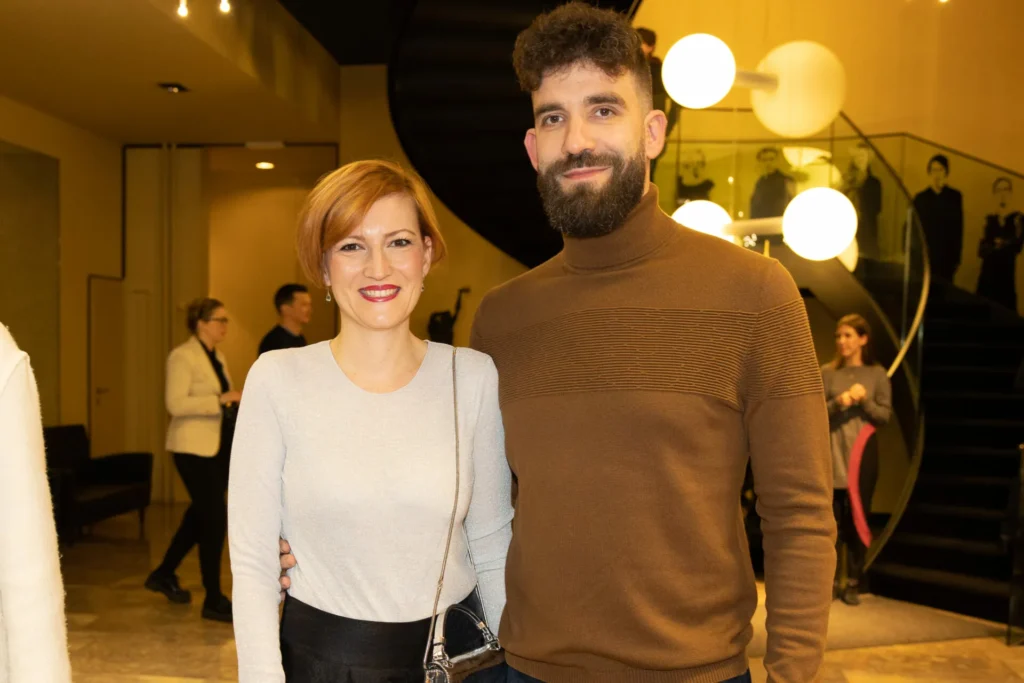A project entitled “Media Landscape in Slovenia – between Pluralization and Homogenization” is currently being implemented at the Faculty of Social Sciences (FDV) in Ljubljana and is co-financed by the Ministry of Culture. But apparently, no one at the Ministry finds it objectionable that the Minister’s partner is participating in the project as a member of the research team. So much for the change in political culture that the head of the current government pompously announced before entering politics.
The Preiskovalno.si (Investigative.si) web portal reveals that the case is a three-year project worth almost 300,000 euros, the aim of which is, among other things, “to analyse the key dimensions and patterns of diversity in the production, distribution and consumption of media content in a selected sample of Slovenian media and their users.”
The Ministry is aware of the risk of conflicts of interest
The Ministry of Culture, headed by Asta Vrečko, coordinator of the Left party (Levica), explained in its defence that the topic of the project was proposed by the Minister’s predecessor, former Minister Vasko Simoniti, and that the selection process began during the Janša government, at the beginning of 2022. “The call for tenders was supposed to be managed by the Slovenian Research and Innovation Agency (ARIS), and the Ministry of Culture participated as a co-financer,” the aforementioned web portal also states, adding that the head of the project, which will be concluded on the 30th September, Dr Igor Vobič, explained that the faculty where Dr Aleksander Sašo Slaček Brlek is employed as a research associate had informed both the Ministry of Culture and the Agency in June 2022 of the risk of a conflict of interest. As they explained to them, their scientific collaborator, who is involved in the project itself, is living with the current Minister, as he is her common-law partner. They also provided a document to support their claim.
The Minister’s partner continues to be part of the research team, which confirms that no one at the Ministry of Culture is at all bothered by the fact that he is paid for his research work by the Ministry. On top of that, we should not ignore the fact that, in the case of the Minister’s partner, he is also a person who is active in the Left party. Namely, he “actively co-creates political strategies for one of the parliamentary parties” and has also shown political ambition in the past, when he stood as a candidate for a Member of the European Parliament on the Left party’s list. In light of this, of course, it is easy to wonder whether such a person can even participate in an objective way in the study of the plurality of our media landscape.
For the Left party, restricting research would be a serious violation of the Constitution of the Republic of Slovenia.
“Political affiliation in itself should not be a reason to question the professionalism of a researcher,” insists the coalition Left party, adding that political involvement and membership in the party do not contradict the ethical rules of the University of Ljubljana. “The Code of Ethics for Researchers of the University of Ljubljana emphasises competence, ethical conduct, responsibility towards society and respect for the rights and dignity of all individuals,” they explain, expressing their belief that “restricting or preventing research activities on the basis of (certain) political beliefs would be a serious violation of the Constitution of the Republic of Slovenia and the European Convention on Human Rights and would contradict the basic values of a democratic society.” In this context, they pointed to several articles of the Constitution of the Republic of Slovenia and of the European Convention on Human Rights, which guarantee freedom of expression, the right to assembly and association, equality before the law irrespective of political or other opinion, and the prohibition of discrimination on the grounds of political or other opinion.
As this is a specific case of research that may have an impact on media lawmaking, the aforementioned web portal points out the inappropriateness of the Left party’s reference to constitutional rights and alleged discrimination. “In this context, the question of the appearance of impartiality becomes crucial,” they made it clear, pointing out that in light of the fact that the research involves the minister’s partner, who is a member of the same party as the Minister herself, and that it is the Ministry of Culture that is co-financing the research, questions arise around the clarity of the boundaries between politics, interests and science. Additionally, the Minister’s partner might well have recused himself from further participation in the project, since it is well known that the very risk of a conflict of interest can cast doubt in the public mind on the work of all the other experts involved in the research itself.
S. K.


